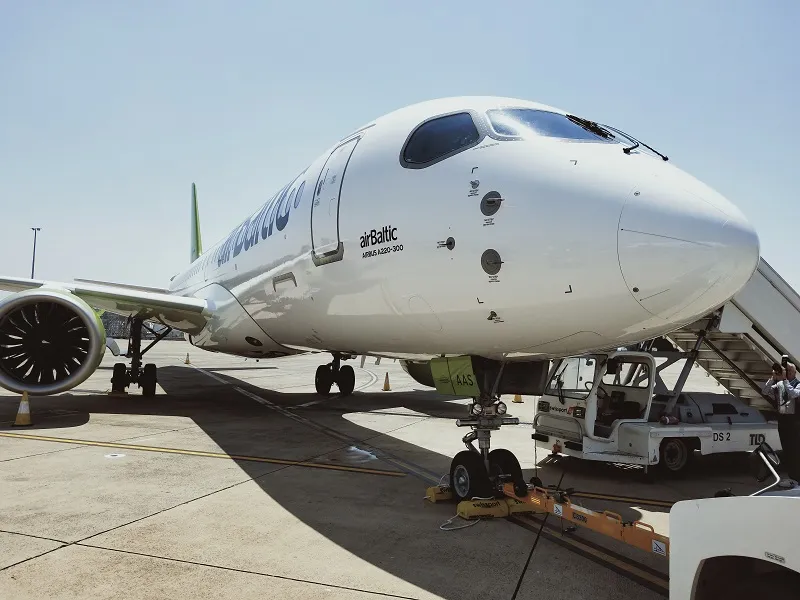
Qantas to launch domestic fleet renewal process in 2020
Oct 29, 2019

In 2020, Qantas initiated a significant domestic fleet renewal process aimed at modernizing its aircraft and enhancing operational efficiency. This initiative was designed to replace older models with more fuel-efficient and environmentally friendly planes, thereby reducing carbon emissions and operating costs. The renewal plan also focused on improving passenger comfort and experience, as newer aircraft typically feature advanced technology and amenities. This strategic move was part of Qantas's broader commitment to sustainability and innovation in the aviation industry, positioning the airline for long-term growth in the competitive domestic travel market.
The airline industry is constantly evolving, and one significant player in this arena is Qantas. In 2020, Qantas announced the launch of its "domestic fleet renewal process", a strategic move aimed at enhancing operational efficiency and passenger experience. This initiative is crucial as it reflects the airline's commitment to sustainability and innovation in an increasingly competitive market.
Overview of Qantas’ Domestic Fleet Renewal Process
The "domestic fleet renewal process" is designed to replace older aircraft with newer, more efficient models. This decision is driven by several factors, including the need for improved fuel efficiency, reduced emissions, and enhanced passenger comfort. Qantas aims to ensure that its fleet remains at the forefront of technology while also meeting regulatory standards for safety and environmental impact.
Benefits of the Fleet Renewal
There are numerous advantages associated with the "fleet renewal" initiative:
- Improved Fuel Efficiency: Newer aircraft models consume less fuel, which not only reduces operational costs but also lowers the carbon footprint of the airline.
- Enhanced Passenger Experience: Modern aircraft are often equipped with the latest technology, offering passengers more comfort and better in-flight services.
- Increased Reliability: Newer aircraft tend to have fewer technical issues, resulting in fewer delays and cancellations.
Projected Timeline for the Renewal Process
The "renewal process" is expected to unfold over several years, with Qantas strategically planning the introduction of new aircraft into its fleet. Below is a projected timeline for the "domestic fleet renewal process":
| Year | Milestone |
|---|---|
| 2020 | Announcement of the fleet renewal initiative |
| 2021 | Evaluation of potential aircraft models |
| 2022 | First deliveries of new aircraft |
| 2023 | Completion of the first phase of fleet replacement |
| 2024 and beyond | Continued integration of new aircraft into the fleet |
Environmental Commitment
One of the cornerstones of Qantas’ "fleet renewal process" is its dedication to environmental sustainability. The airline is committed to achieving net-zero carbon emissions by 2050, and this initiative plays a pivotal role in reaching that goal. By introducing more fuel-efficient aircraft, Qantas aims to significantly reduce its greenhouse gas emissions and contribute to a more sustainable future.
Potential Challenges
While the "domestic fleet renewal process" presents numerous opportunities, it is not without its challenges. Some potential obstacles include:
- Financial Investment: The acquisition of new aircraft requires significant capital investment, which can be a challenge, especially in a fluctuating economy.
- Supply Chain Issues: Delays in aircraft deliveries due to global supply chain disruptions can hinder the renewal timeline.
- Regulatory Approvals: Ensuring that new aircraft meet all regulatory requirements can be a lengthy process.
Conclusion
Qantas’ decision to initiate a "domestic fleet renewal process" in 2020 marks a significant step towards enhancing its operational capabilities and passenger experience. By focusing on modern, fuel-efficient aircraft, the airline not only aims to improve its bottom line but also to fulfill its commitment to environmental sustainability. As the airline industry continues to adapt to changing market dynamics, Qantas’ proactive approach to fleet renewal positions it favorably for future growth and success.
Related Articles

Explore Thailand: The Best Islands to Visit for Paradise, Adventure, and Relaxation

The Ultimate Guide to the Best Islands in Thailand for Your Next Getaway

Do babies need passports? How to get a passport for a newborn

How to get a U.S. passport fast: here’s how to expedite the process

What is Mobile Passport Control: 5 reasons why you should use it

SENTRI vs. Global Entry: A detailed guide

Do you need a passport to go to the Bahamas? Let’s find out

Do you need a passport to go to Mexico? A detailed guide

Do you need a passport to go to Canada? We got the answer

Do You Need a Passport for a Cruise: An Essential Travel Guide

Booster Seat Requirements: All the Rules to Follow in Your Rental Car

What Are the World’s Most Powerful Passports, and How Does Yours Rank?

How to Take a Passport Photo at Home: A Helpful Guide

You've got to have heart! Southwest's new livery

Your opinion: Should water be free on low cost carriers?

Young women bolder than guys as solo travellers
